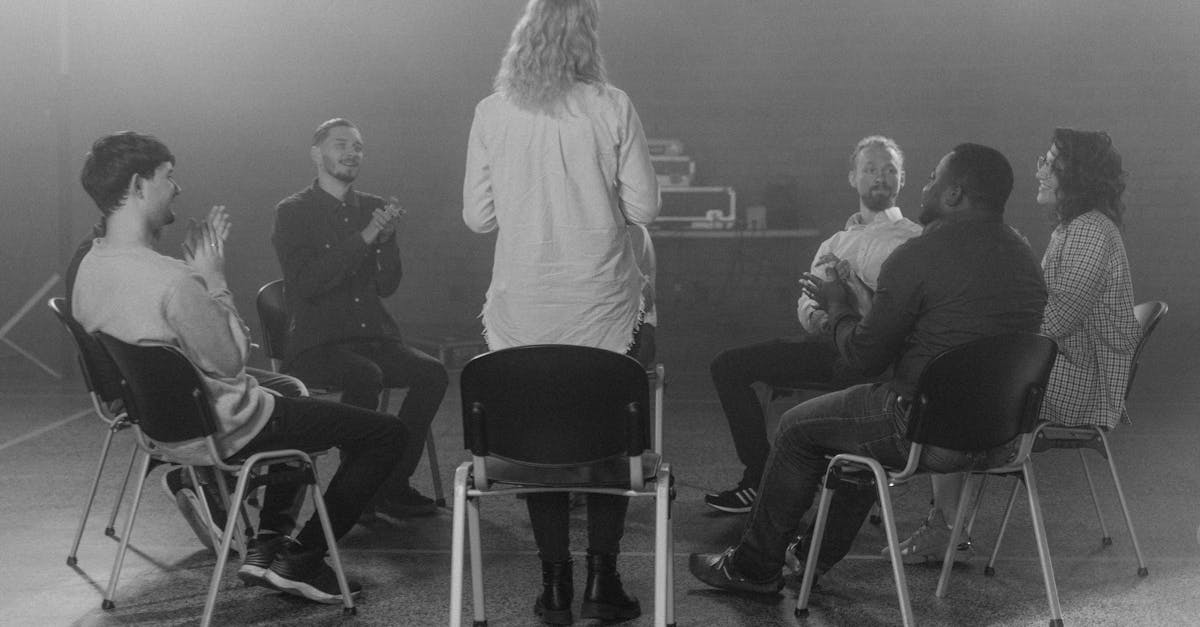
Table Of Contents
Types of Group Therapy Approaches
Types of Group Therapy Approaches
Group therapy is a widely used form of therapy that offers individuals the opportunity to share their experiences, challenges, and triumphs with others in a supportive and confidential setting. One popular approach is Interpersonal Therapy (IPT), which focuses on improving communication skills, fostering healthy relationships, and addressing interpersonal conflicts within the group. IPT aims to increase self-awareness and emotional insight while providing a space for members to connect with one another on a deeper level. Another common group therapy approach is Motivational Interviewing (MI), which is particularly beneficial in the context of addiction recovery. Group members are encouraged to explore their motivations for change and work collaboratively towards setting and achieving personal goals related to their recovery journey. MI empowers individuals to identify their strengths and values while offering support and accountability within the group dynamic.
Interpersonal Therapy (IPT)
Interpersonal Therapy (IPT) is a widely used form of group therapy that focuses on improving communication and relationships within the group. The primary goal of IPT is to address interpersonal issues that contribute to psychological distress and help individuals navigate their emotions in a supportive group setting. Through discussions and activities, members learn to identify and express their feelings in a constructive manner, fostering healthier interactions with others in the group therapy setting.
IPT emphasises the importance of social connections and how they influence an individual's mental well-being. By exploring relational dynamics and learning effective communication skills, group therapy participants can develop a greater sense of self-awareness and a deeper understanding of how their interactions impact their emotional state. Through the guidance of a trained therapist, IPT offers a safe space for individuals to explore their feelings, improve their relationships, and enhance their overall quality of life within the realm of group therapy.
Group Therapy for Addiction Recovery
Group Therapy for Addiction Recovery is a widely used and effective approach to help individuals overcome substance abuse issues. In this setting, individuals come together in a supportive environment to share their experiences, provide encouragement to one another, and work towards a common goal of sobriety. Group Therapy allows participants to feel understood and less isolated in their struggles with addiction, fostering a sense of community and camaraderie.
Group Therapy sessions for addiction recovery may incorporate various therapeutic techniques such as cognitive-behavioural strategies, motivational interviewing, and psychoeducation. These approaches help individuals address the underlying causes of their addictive behaviours, develop coping skills to manage cravings and triggers, and build a strong support network within the group. Through active participation and engagement in Group Therapy, individuals can gain valuable insights, receive feedback, and learn from the experiences of others who are on a similar path to recovery.
Motivational Interviewing (MI)
Motivational Interviewing (MI) is a widely recognised approach in the realm of group therapy, particularly in the context of addiction recovery. This method aims to explore and resolve ambivalence within individuals, fostering intrinsic motivation for change. By engaging in collaborative conversations that highlight discrepancies between a person's values and their current behaviour, MI empowers individuals to identify and work towards their recovery goals within a group therapy setting. The non-confrontational and empathetic nature of MI allows for a supportive environment where individuals feel understood and motivated to make positive changes in their lives through group therapy.
In the realm of group therapy for addiction recovery, Motivational Interviewing (MI) has gained prominence for its focus on enhancing motivation and promoting sustainable behavioural changes. Through fostering a sense of autonomy and self-efficacy in group therapy sessions, MI empowers individuals to take ownership of their recovery journey. By emphasising the importance of collaboration and respect within the group therapy process, MI facilitates a safe and supportive space for individuals to explore their challenges, set goals, and work towards a healthier, more fulfilling life free from addiction.
Group Therapy Process
The process of Group Therapy involves individuals coming together to share their experiences, emotions, and challenges in a supportive group setting. Group members are encouraged to communicate openly and honestly with each other, fostering a sense of belonging and understanding within the group dynamic. Facilitated by a trained therapist, Group Therapy sessions aim to provide a space for participants to explore their thoughts and feelings, gain insights into their behaviours, and receive feedback from both the facilitator and their peers.
Through Group Therapy, participants can develop a sense of connection and solidarity with others who may be facing similar issues. This shared experience can help individuals feel less isolated and more validated in their struggles, leading to increased self-awareness and personal growth. Group Therapy can also provide a platform for participants to practice new coping skills, develop healthier relationships, and receive encouragement and support from their peers.
TraumaFocused Cognitive Behavioural Therapy (TFCBT)
Trauma-Focused Cognitive Behavioural Therapy (TF-CBT) is a widely-used approach in group therapy that combines elements of cognitive behavioural therapy with techniques tailored to address trauma-related symptoms. This therapy is particularly effective for individuals who have experienced various forms of trauma, such as abuse, violence, or accidents. In a group therapy setting, TF-CBT aims to help participants process their traumatic experiences, manage distressing emotions, and develop healthier coping strategies.
One of the strengths of TF-CBT in group therapy is its structured nature, which provides a clear framework for addressing trauma-related issues systematically. By incorporating cognitive restructuring, relaxation techniques, and gradual exposure to trauma memories, TF-CBT helps group therapy participants develop a better understanding of their responses to trauma and learn how to disrupt negative patterns of thinking and behaving. Additionally, the group therapy dynamic enhances the sense of support and understanding among participants, fostering a safe environment for sharing experiences and insights related to trauma recovery.
FAQS
What is group therapy?
Group therapy is a form of psychotherapy where a small group of individuals meet regularly to discuss and work through their challenges together, guided by a trained therapist.
What are the benefits of group therapy?
Group therapy offers various benefits, such as providing support from peers facing similar issues, promoting social skills development, offering different perspectives on problems, and creating a sense of belonging and connection.
How does Interpersonal Therapy (IPT) work in group therapy?
Interpersonal Therapy (IPT) focuses on improving communication and relationship patterns within the group, helping members develop healthier interpersonal skills and resolve conflicts effectively.
Can group therapy be effective for addiction recovery?
Yes, group therapy is an effective approach for addiction recovery as it provides a supportive environment, accountability, and opportunities for sharing experiences and coping strategies, such as through techniques like Motivational Interviewing (MI).
What is the process of group therapy for trauma-focused issues?
In trauma-focused group therapy, techniques like Trauma-Focused Cognitive Behavioural Therapy (TF-CBT) are used to help individuals process and heal from traumatic experiences within a safe and supportive group setting.
